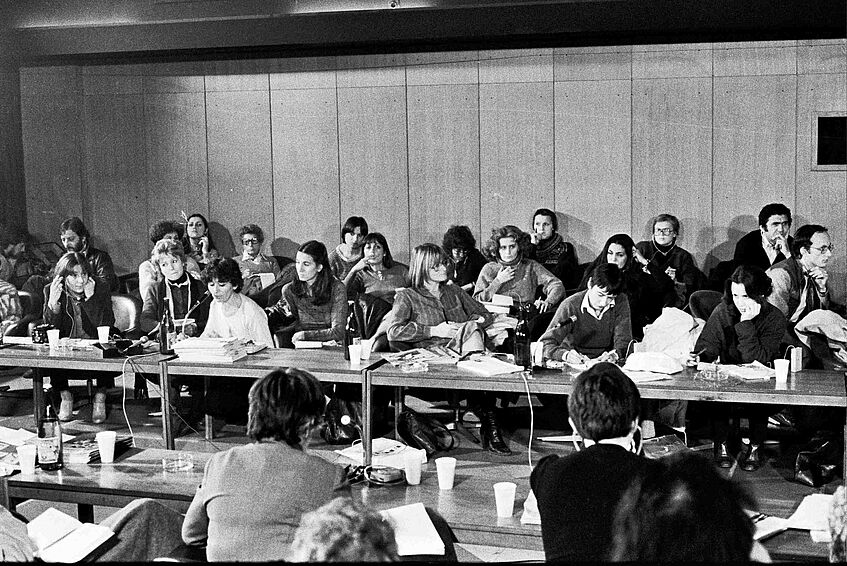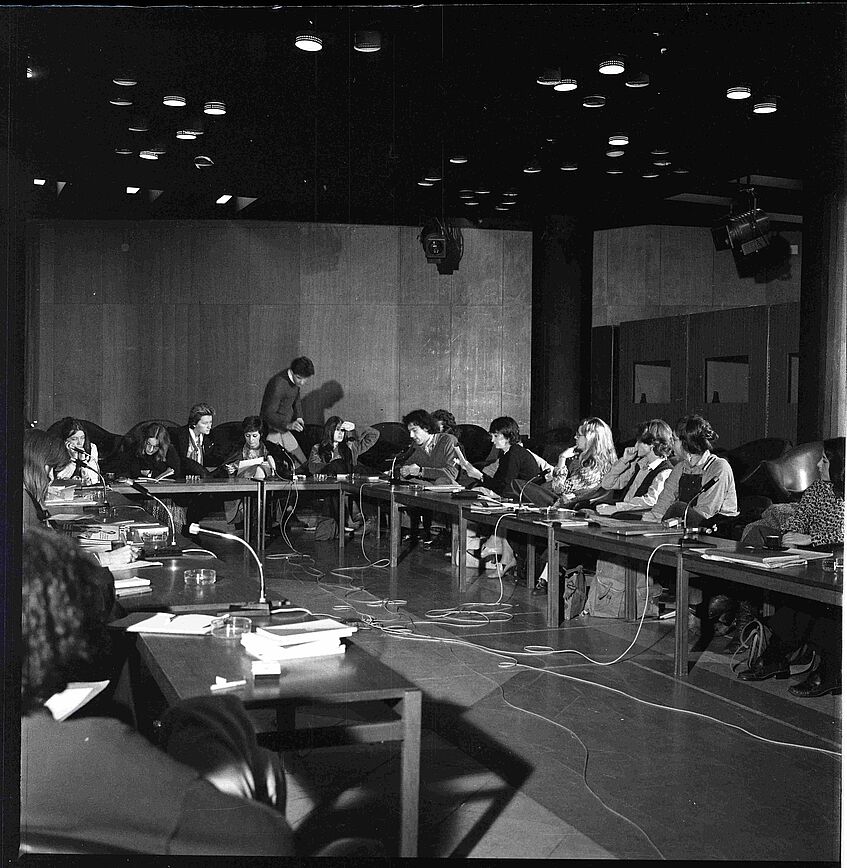HERESSEE -The History of Feminist Political Thought and Women’s Rights Discourses in East Central Europe 1929 – 2001


HERESSEE -The History of Feminist Political Thought and Women’s Rights Discourses in East Central Europe 1929 – 2001
Projektleitung: Ass.Prof.in Zsófia Lóránd, MA PhD
Projektmitarbeit Aleksandra Dimitrova, BA M.Sc.
Finanzierung: ERC
Projekthomepage
Dieses Projekt erstellt die erste umfassende und multidisziplinäre Geschichte des feministischen politischen Denkens und der Frauenrechtsdiskurse in Ostmitteleuropa in einer breiten chronologischen Perspektive. Die Geschichte des Feminismus in der Region wird in diesem Projekt in Bezug auf den Staatssozialismus und die Geschichte des Staatssozialismus durch Feminismus neu interpretiert. Es behandelt die Vorgeschichte der Debatten zwischen Sozialismus und Feminismus in der Zwischenkriegszeit sowie die Kämpfe um die Aufarbeitung der staatssozialistischen Vergangenheit nach 1989 als integralen Bestandteil der Geschichte des Staatssozialismus. Geisteshistoriker haben dieser Region, den Frauen und dem Feminismus relativ wenig Aufmerksamkeit geschenkt. Doch gerade die traditionell zentralen Themen der Ideengeschichte – etwa die Entstehung und Transformation von Ideen in ihren sozialen und kulturellen Kontexten – sind erforderlich, um den Feminismus in Ostmitteleuropa zu verstehen. Fortschritte auf diesem Gebiet wurden häufig durch methodische Neuerungen und insbesondere durch die Verwendung von Quellen vorangetrieben, die über politische Aufsätze und wissenschaftliche Veröffentlichungen hinausgehen. Dieses Projekt stützt sich auch auf Quellen wie populäre Frauenzeitschriften, Literatur- und Kunstwerke, Samizdat-Veröffentlichungen, Parteidokumente und Oral History Interviews. Das Forschungsteam spiegelt die Vielfalt des europäischen Kontinents wider und mobilisiert sprachliche und methodische Fähigkeiten, um der breiten Quellenbasis, der umfassenden Geographie und der erweiterten Chronologie des Projekts gerecht zu werden und einen Forschungsbestand zu erstellen, der sowohl umfassend als auch sensibel für lokale Besonderheiten ist. Durch die Verortung in ihren lokalen, regionalen und transnationalen Kontexten integriert dieses Projekt feministisches politisches Denken, Frauenrechtsdiskurse und ihre Autorinnen in Ostmitteleuropa in die breitere europäische intellektuelle Tradition.
